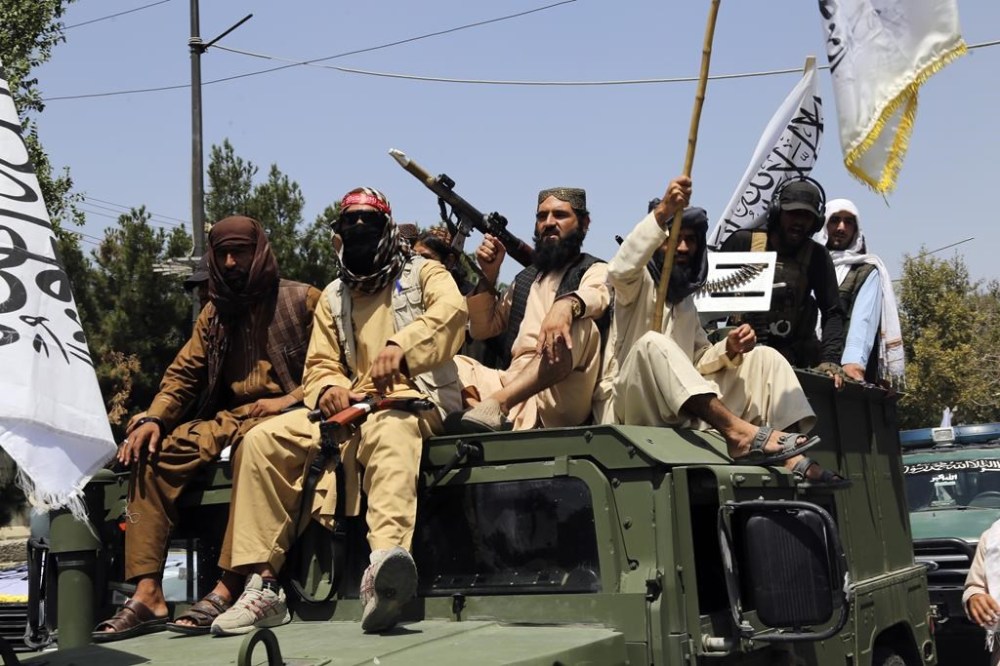Taliban vice and virtue laws provide ‘distressing vision’ for Afghanistan, warns UN envoy
Advertisement
Read this article for free:
or
Already have an account? Log in here »
To continue reading, please subscribe:
Monthly Digital Subscription
$0 for the first 4 weeks*
- Enjoy unlimited reading on winnipegfreepress.com
- Read the E-Edition, our digital replica newspaper
- Access News Break, our award-winning app
- Play interactive puzzles
*No charge for 4 weeks then price increases to the regular rate of $19.95 plus GST every four weeks. Offer available to new and qualified returning subscribers only. Cancel any time.
Monthly Digital Subscription
$4.99/week*
- Enjoy unlimited reading on winnipegfreepress.com
- Read the E-Edition, our digital replica newspaper
- Access News Break, our award-winning app
- Play interactive puzzles
*Billed as $19.95 plus GST every four weeks. Cancel any time.
To continue reading, please subscribe:
Add Free Press access to your Brandon Sun subscription for only an additional
$1 for the first 4 weeks*
*Your next subscription payment will increase by $1.00 and you will be charged $16.99 plus GST for four weeks. After four weeks, your payment will increase to $23.99 plus GST every four weeks.
Read unlimited articles for free today:
or
Already have an account? Log in here »
Hey there, time traveller!
This article was published 25/08/2024 (501 days ago), so information in it may no longer be current.
ISLAMABAD (AP) — The Taliban’s new vice and virtue laws that include a ban on women’s voices and bare faces in public provide a “distressing vision” for Afghanistan’s future, a top U.N. official warned Sunday.
Roza Otunbayeva, who heads the U.N. mission in the country, said the laws extend the “ already intolerable restrictions ” on the rights of women and girls, with “even the sound of a female voice” outside the home apparently deemed a moral violation.
Afghanistan’s Taliban rulers last Wednesday issued the country’s first set of laws to prevent vice and promote virtue. They include a requirement for a woman to conceal her face, body and voice outside the home.

The laws empower the Vice and Virtue Ministry to be at the front line of regulating personal conduct and administering punishments like warnings or arrest if its enforcers allege that Afghans have broken the laws.
“After decades of war and in the midst of a terrible humanitarian crisis, the Afghan people deserve much better than being threatened or jailed if they happen to be late for prayers, glance at a member of the opposite sex who is not a family member, or possess a photo of a loved one,” Otunbayeva said.
The mission said it was studying the newly ratified law and its implications for Afghans, as well as its potential impact on the U.N. and other humanitarian assistance.
Taliban officials did not immediately respond to requests for comment on the U.N. criticism.
In remarks broadcast Sunday by state-controlled broadcaster RTA, Vice and Virtue Minister Mohammad Khaled Hanafi said nobody had the right to violate women’s rights based on inappropriate customs.
“We are committed to assure all rights of women based on Islamic law and anyone who has a complaint in this regard will be heard and resolved,” he added.
Taliban supreme leader Hibatullah Akhundzada said last year that Afghan women are provided with a “comfortable and prosperous” life, in spite of decrees barring them from many public spaces, education and most jobs.
The U.N. has previously said that official recognition of the Taliban as the legitimate rulers of Afghanistan is nearly impossible while restrictions on women and girls remain.
Although no country recognises the Taliban, many in the region have ties with them.
Last Wednesday, the United Arab Emirates accepted the credentials of the Taliban’s ambassador to the oil-rich Gulf Arab state.
A UAE official said the decision reaffirmed the government’s determination to contribute to building bridges to help Afghans. “This includes the provision of humanitarian assistance through development and reconstruction projects, and supporting efforts that work towards regional de-escalation and stability.”
Otunbayeva is scheduled to report to the U.N. Security Council on the situation in Afghanistan on Sept. 18, three years after the Taliban stopped girls’ education beyond sixth grade.
Acting Higher Education Minister Nada Mohammed Nadim said religious scholars were researching female education and it was their findings that would determine if schools and universities will reopen.
“Nobody should make himself a cleric or tell us if education is permitted for women,” he told a news conference in Kabul on Sunday. “We have proven that any decision won’t be against Islamic law or Afghan culture. This is a very sensitive issue so deciding in weeks or months is not possible. We can’t say exactly that, on this date, this will be solved.”
The Free Press acknowledges the financial support it receives from members of the city’s faith community, which makes our coverage of religion possible.


